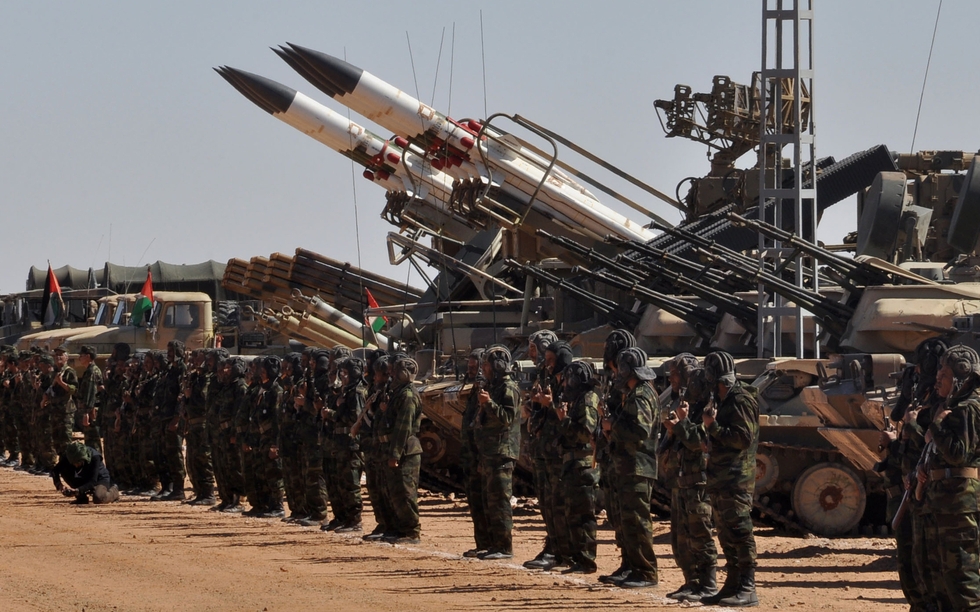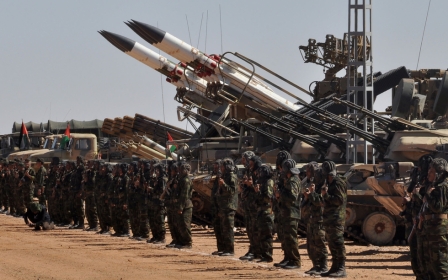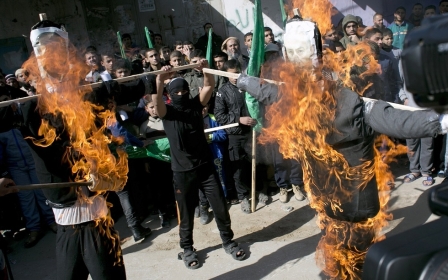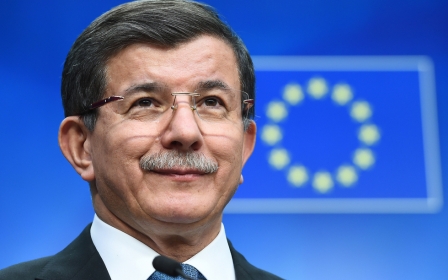Arabic press roundup: Western Sahara becomes hot topic

The thorny and little-discussed issue of the Western Sahara has been thrown back into the spotlight in recent weeks.
UN chief Ban Ki Moon, who visited the disputed territory earlier this month, said there should be a referendum on independence from Morocco but Rabat unsurprisingly opposed this outright. On Sunday, up to one million Moroccans marched through their capital to protest such a move.
Algeria, which hosted the Secretary General and supports the Polisario Front in its 40-year quest for independence, has been quick to jump in.
But the whole affair also helped highlight the various affiliations and alliances both regional and beyond.
Algerian and Western Saharan media lined up to support the Secretary General's words, and condemn the rejection of Morocco. The official Western Sahara news agency, Sahara Press Service, described the reaction of Morocco to last week's statement as being “a result of its failed occupation”.
It also reported the official position of Western Sahara’s "foreign minister", Mohammad Salim al-Salik, who said that “Morocco’s refusal of a referendum for self-determination is the reason behind its current international isolation”.
The Algerian Echoroukonline website meanwhile criticised the anti-UN statements of the Moroccan prime minister, saying that Morocco was denying the self-determination of Western Sahara.
Moroccan media, meanwhile, has been unflinching in its support for the king and the country’s foreign policy.
The Moroccan Hespress news website reported that Algeria’s foreign minister, Ramtan Limamra, compared Morocco to Israel.
“Moroccan colonialism and actions in the Western Sahara are similar to the Israeli occupation of Palestine," the paper quoted him as saying. "The denial of Palestinian human rights by Israel is like the Moroccan denial of the Saharan human rights."
Hespress also published an opinion piece by Moroccan columnist, Moulay Bahtat, calling on his country to adopt a “vigorous” foreign policy style in dealing with all sides concerning Western Sahara, including Europe.
He invited his government to use its many cards to press anyone attacking its stance on the disputed area.
"Didn't the European Union submit to the Turkish conditions regarding the refugee crisis? Why does not Morocco play the same role - as Turkey - using its borders with Europe as a card? Morocco proved to be a key player in fighting terrorism lately, yet we failed in using that card," said Bahtat.
But that would be a bad call, according to an article on the website of the London-based newspaper, al-Quds al-Arabi, which suggested Morocco's intransigence on the Western Sahara had affected bilateral relations with the EU.
"The Morocco-EU relations have been affected where the Netherlands cancelled a social security deal with Morocco... Swiss Co-op stores boycotted Moroccan produce originating from Western Sahara, and before that, the European court decided to freeze the agricultural exchange agreement," said the article.
Elsewhere, Jordan's al-Ghad newspaper reported the “fuming popular mood” in Morocco.
“Hundreds of thousands participated in a massive protest in Rabat to condemn the UN position," the article said. "The authorities offered protesters food and free transport for an estimated three million people.”
Marrakechalaan.com described the mega protest as a "protest of the century". The news website reflected on the protest by publishing an interview with Dr Al Ghali who stated: "The size of this massive protest is a message against the deviation and bias of Ban Ki Moon.”
Saudi Arabia, which has close ties with Morocco despite their geographical distances, seized the opportunity to once again flaunt its newly “rising foreign policy” and relations with Morocco. Al-Riyad newspaper reported that a delegation of Saudi businessman visited Morocco and some parts of Western Sahara and discussed the possibility of investment in the disputed area.
The Saudi investment offer drew criticism from Algeria and the Polisario Front, which threatened legal action against Saudi investors, according to Echoroukonline.
New MEE newsletter: Jerusalem Dispatch
Sign up to get the latest insights and analysis on Israel-Palestine, alongside Turkey Unpacked and other MEE newsletters
Middle East Eye delivers independent and unrivalled coverage and analysis of the Middle East, North Africa and beyond. To learn more about republishing this content and the associated fees, please fill out this form. More about MEE can be found here.




